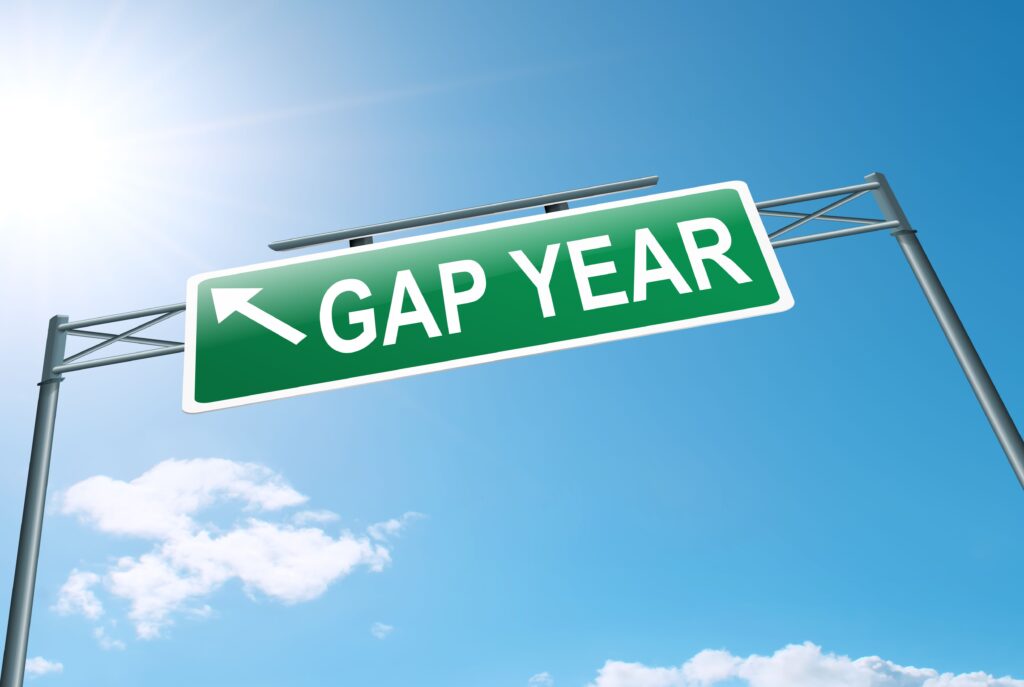Going to school and obtaining a degree is a process that takes dedication, consistency, and self-awareness. Whether a new high school graduate or a student in college considering pursuing a graduate degree, many students consider taking gap years.
According to the Gap Year Association, a gap year is, “a semester or year of experiential learning, typically taken after high school and prior to career or postsecondary education, to deepen one’s practical, professional, and personal awareness.”
The college experience is a rewarding process. For many high school graduates, the idea of a gap year(s) entails taking at least a year long break before attending a college or university. Many students travel abroad or find part or full-time employment to save for college or to begin understanding the working world. Today’s high school and college graduate’s have unlimited access to technology, a diverse understanding of social media, and resources instantly at their disposal.
This leads to many young adults deciding to pursue careers in the social media and influencer space. There are multiple reasons students find to take gap years. Embracing becoming a lifelong learner is part of taking a gap year and beginning the college experience. When considering taking a gap year, understanding the benefits of self-discovery, academic advantages, and building practical skills for real-world applications is essential.
Benefits of Self-Discovery
There are many pros and cons to taking a gap year. For those who want to go to college out of high school, the college process involves helping high school students decide where to go. One benefit of taking a gap year is that many people learn more about themselves and have a positive self-discovery.
This also includes individuals saving money, personal growth, expanding their world views, and expanding their social and professional network. Discovering an authentic sense of self is crucial when learning about the college experience, career aspirations, and personal and professional future investments. Along with an enhanced sense of self-discovery, there is also the opportunity to gain insights and academic advantages.
In addition to there being pros to taking a gap year, if not planned out effectively there can also be stalled transitions and the potential for wasting time and money. In order to effectively enhance the experience of gap years, it is important to find other like-minded individuals and to write out plans and important goals for the future. This is especially true when it comes to researching and choosing which degree to pursue in undergraduate and graduate school.
Academic Advantages
In addition to fostering a positive self-discovery, there are many academic advantages to taking a gap year. Many factors influence which school and degree to pursue. This includes personal preferences, finances, career expectations, and time to completion. Taking a gap year whether it is before attending undergraduate school or graduate school can provide academic advantages.
Before choosing a school to attend, it is important to talk to peer groups, counselors, and experts in the academic field. Doing research on a particular college degree or career field is important when it comes to learning how to push through and successfully complete a degree program. The Bureau of Labor of Statistics has researched the return on investment with earnings by degree level. Along with academic advantages, practical skills are learned by taking a gap year before going to school.
Building Practical Skills
Taking a gap year allows for people to learn more about the career or industry they want to work in. Additionally, this increases the knowledge of their selected career field and how it can apply to going to graduate school. Oftentimes, people work in an industry and go to graduate school to increase their salary and gain professional knowledge.
Taking a gap year to think, plan out, and collaborate for the future allows for individuals to learn more about themselves, enhance life experiences, and select the most effective college program for them. Overall, taking a gap year is beneficial, whether it is to learn more about career interests or the college process. Finding out the most effective path depends on the individual and the future aspirations and needs of the student.
Educators never stop learning; check out our available graduate degree programs to hone your skills and promote lifelong learning and academic excellence.




